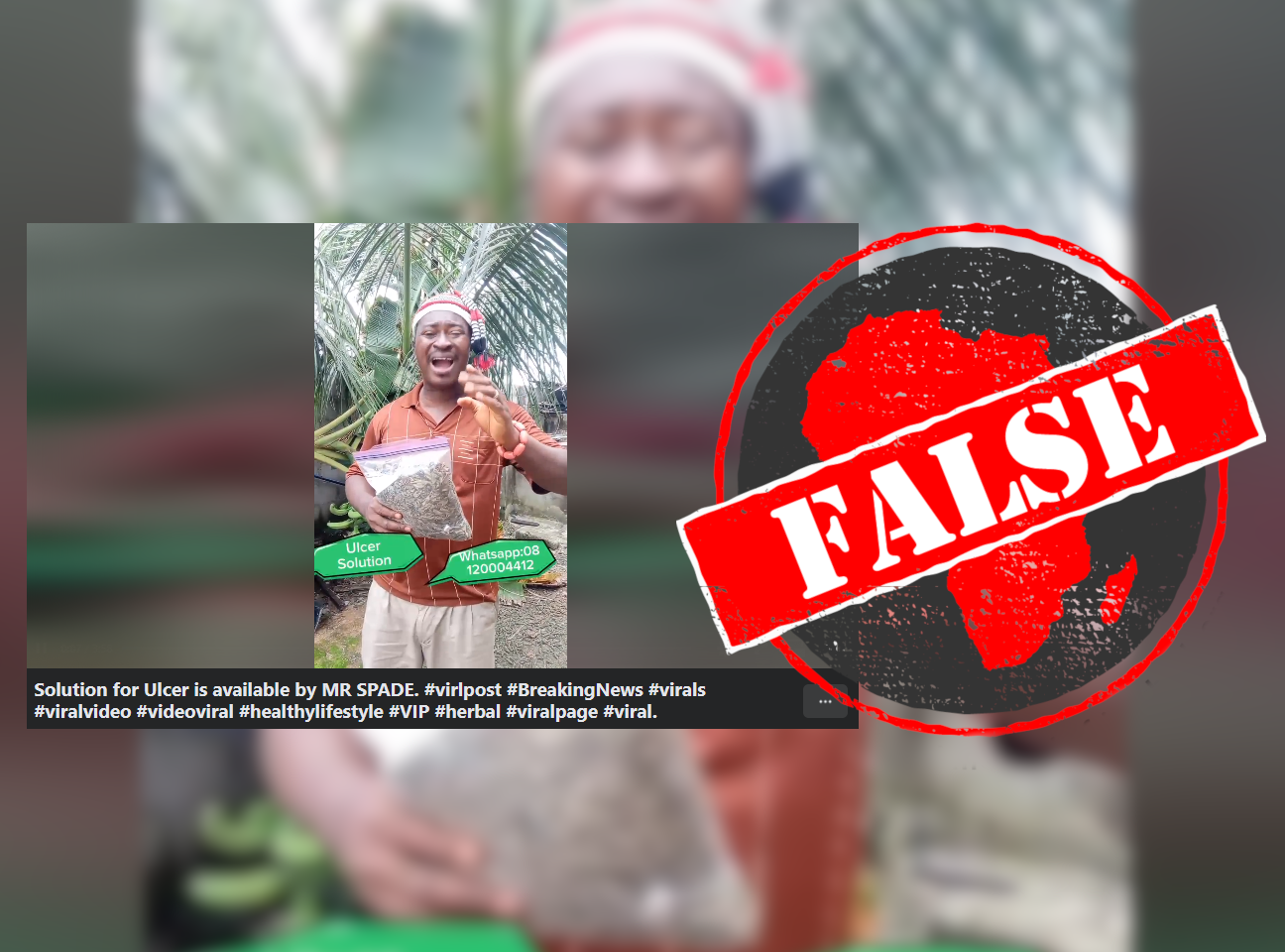IN SHORT: A Facebook post encourages users to take what it calls a “three-in-one” herbal remedy if they want to cure their ulcers. But the herbs have not been identified and may be harmful, so see a doctor instead.
A video posted on Facebook claims that a “three-in-one” herbal remedy can cure ulcers.
It was posted on 11 January 2024 on the Facebook page Mr Spade, which has over 395,000 followers.
The man in the video says: “This medicine will kill Helicobacter pylori, treat the wound and treat the infection. They call this medicine three-in-one.”
Helicobacter pylori (H. pylori) is a bacteria that infects the stomach and is a common cause of stomach (or peptic) ulcers.
The man is seen holding a plastic bag full of what appear to be herbs, but he doesn’t specify what they are. He also advises users to take the mixture “for a good 10 days”.
But is there concrete medical evidence to support his claim? We checked.

Understanding ulcers
Ulcers are open sores that are slow to heal or keep coming back. They can occur on many parts of the body, such as on the skin on your leg or in the lining of your stomach or upper intestine.
Medications are usually used to treat mild to moderate ulcers. For example, antibiotics can be used to treat ulcers that are caused by the H. pylori bacteria.
Antacids may also be prescribed by your doctor to relieve the symptoms of stomach ulcers. However, taking antacids can also prevent antibiotics from working, so it is a good idea to talk to your doctor before taking them.
The ‘three-in-one cure’
Africa Check contacted the Mr Spade account via WhatsApp and asked for the composition of the “three-in-one” herbal remedy. The person answering dodged the question and instead asked for N35,000, reiterating the concoction’s effectiveness in curing ulcers.
We found it suspicious that the person with whom we conversed refused to reveal what herbs were used. Most medicines come with a list of ingredients and clear instructions on how to take them.
Although research has shown that some herbs and plants may be useful in preventing or treating ulcers in humans, the results have shown that they do not eradicate H. pylori.
A 2016 study investigated how effective curcumin was in eliminating H. pylori infection and reducing indigestion in patients with peptic ulcers. Curcumin is found in turmeric and has anti-inflammatory and antioxidant properties.
The study found that curcumin, when combined with the standard treatment for H. pylori, may help prevent stomach ulcers in animals. But it does not completely eliminate the bacteria and there have been no human clinical trials to verify this effect.
Medical expert refutes claim
Africa Check spoke to Dr Folarin Opawoye, an infectious disease consultant at the Lagos University Teaching Hospital in Nigeria. He said: “These claims are unverified and largely untrue.”
Medical experts also warn against treating ulcers on your own without seeing a doctor first.
Republish our content for free
For publishers: what to do if your post is rated false
A fact-checker has rated your Facebook or Instagram post as “false”, “altered”, “partly false” or “missing context”. This could have serious consequences. What do you do?
Click on our guide for the steps you should follow.
Publishers guideAfrica Check teams up with Facebook
Africa Check is a partner in Meta's third-party fact-checking programme to help stop the spread of false information on social media.
The content we rate as “false” will be downgraded on Facebook and Instagram. This means fewer people will see it.
You can also help identify false information on Facebook. This guide explains how.


Add new comment